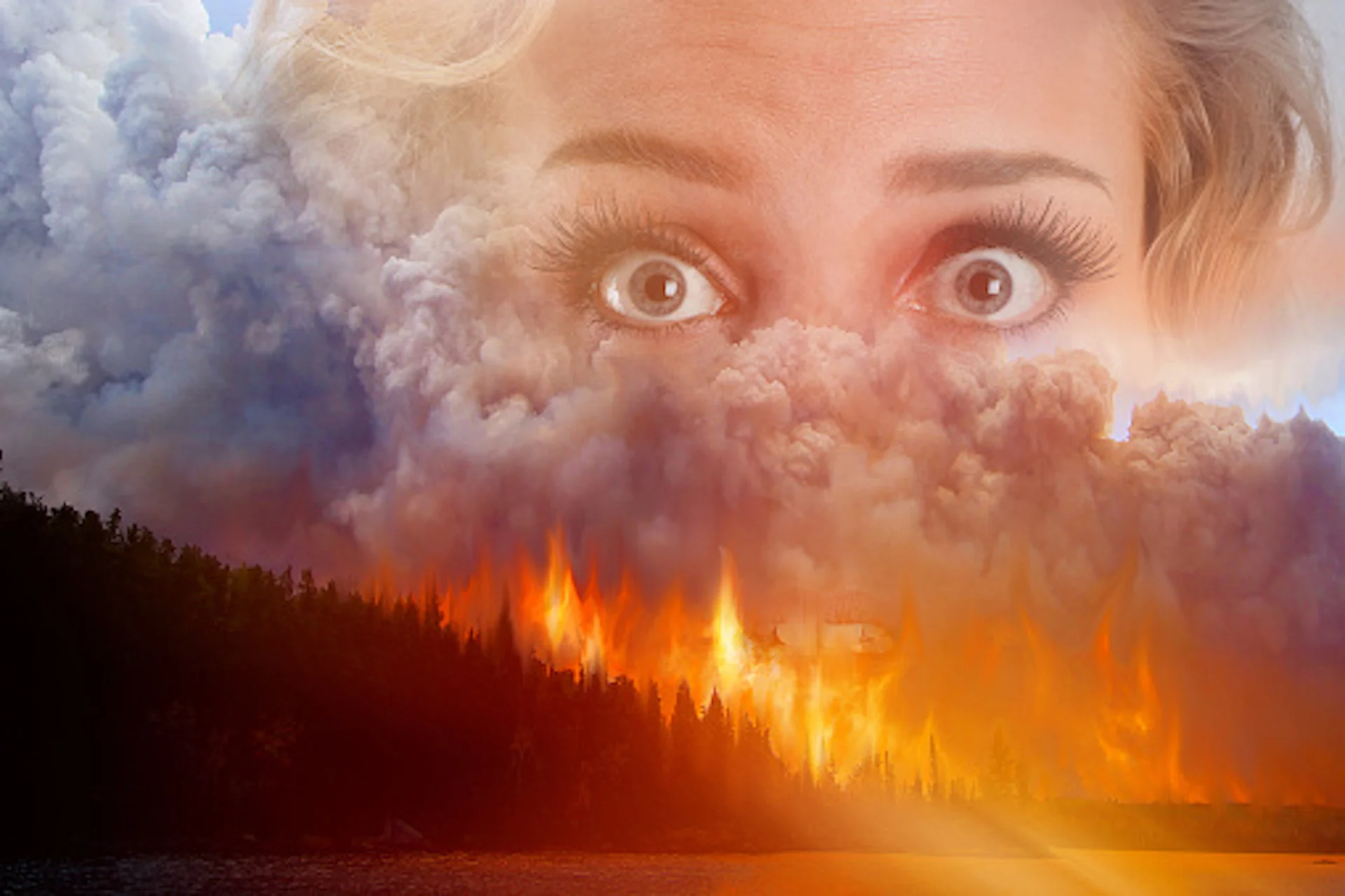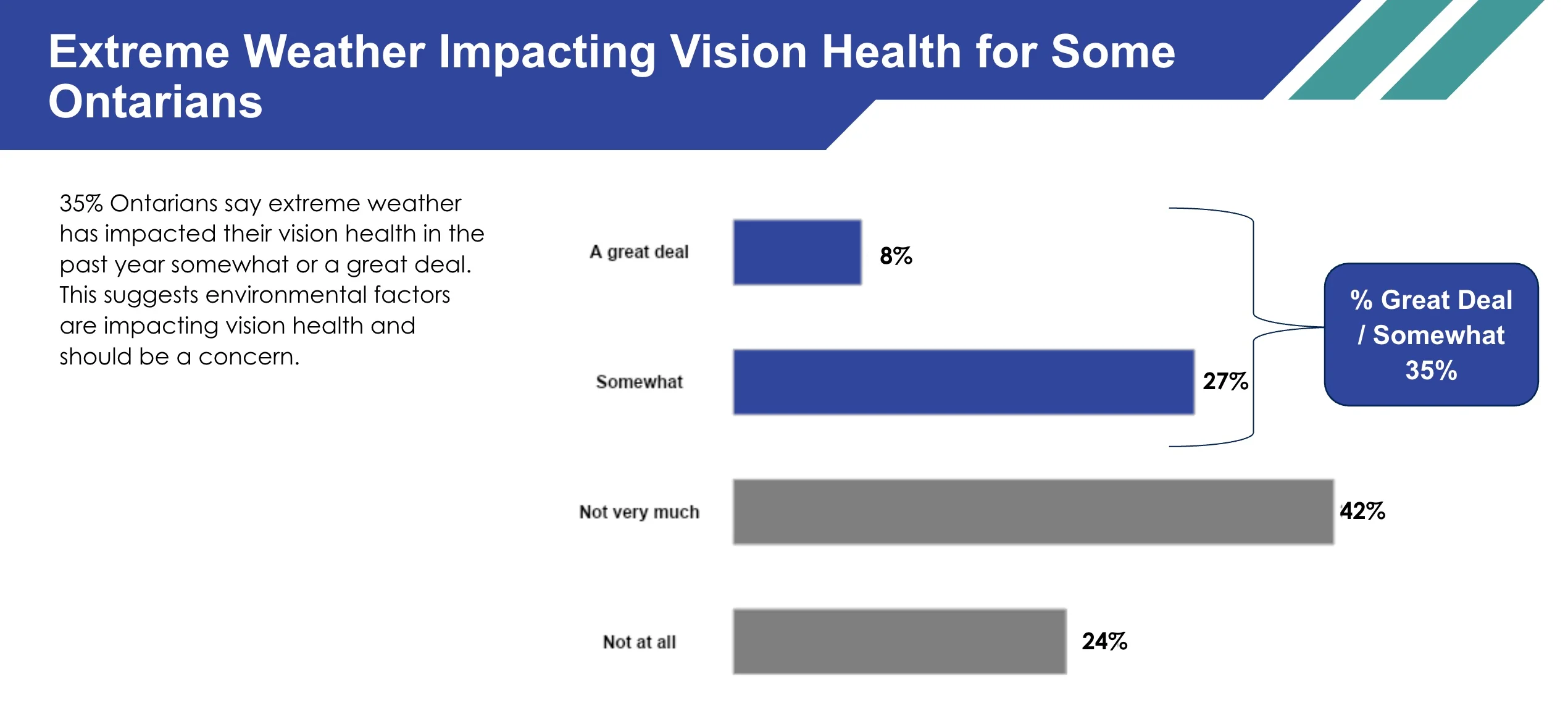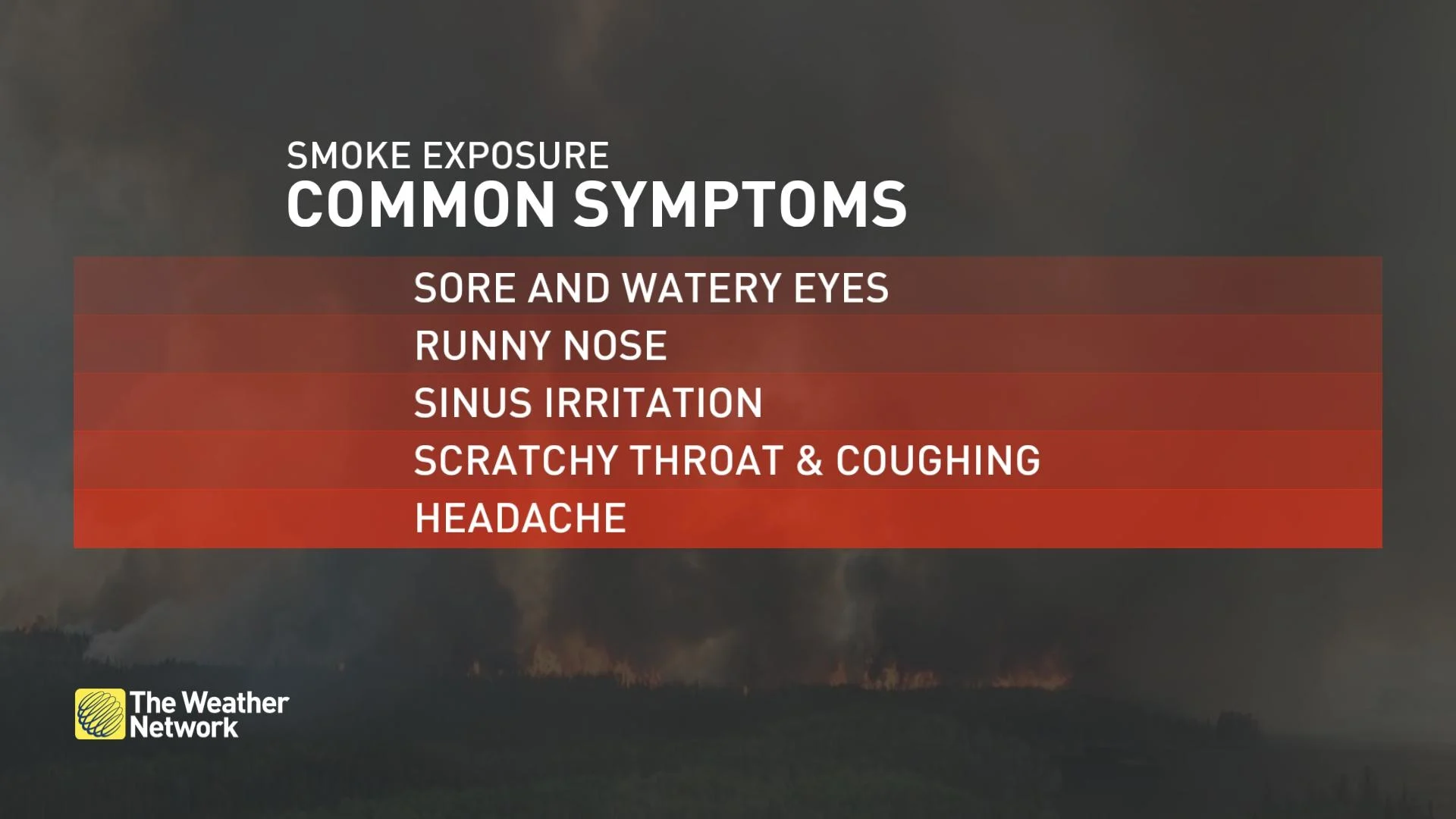
Wildfire smoke, other extreme weather affecting Ontarians' vision: Poll
A recent poll found 35 per cent of Ontario residents reported negative effects to their eye health in the past year, resulting from severe weather such as wildfire smoke and heat waves
With a rise in the number of extreme weather events and their severity in Canada, it's no surprise that more and more are reporting health impacts as a result.
For example, Canada is in the midst of an impactful wildfire season, with smoke spreading away from the blazes--bringing poor and, at times, unsafe air quality levels to numerous communities this summer.
SEE ALSO: One year later: How a billion-dollar flood exposed Toronto’s climate risk
Ontarians, in particular, have experienced impacts to their vision health from wildfire smoke and other extreme weather in the past year, with 35 per cent reporting the effects in a recent poll conducted by the Canadian Ophthalmological Society (COS).

Ontario poll on eye health from extreme weather. (Canadian Ophthalmological Society/Ipsos Canada/Submitted to The Weather Network)
"Given the amount of smoke present in the atmosphere this season, it is not surprising that there are more concerns regarding the ocular effect," Dr. Phil Hooper, treasurer on the board of directors for COS, in an emailed statement to The Weather Network.
Ontarians feel weather impacts in their vision
When broken down, results from the poll, conducted by Ipsos Canada, found eight per cent of Ontarians indicated their eye health suffered a "great deal” of effects while 27 per cent said they were “somewhat” impacted by the weather events.
Hooper said wildfire smoke is irritating to the ocular surface, and that results in increased mucus production, as well as tearing.
"Together, these factors result in fluctuating vision," said Hooper.

Ontario wildfire smoke on satellite. (NOAA)
The amount of impairment from wildfire smoke depends on the intensity of the irritation, Hooper said. "In general, if there is visible smoke in the atmosphere (haze), some ocular irritation will occur," he said.
Wildfire smoke, a mix of gases, particles and water vapour, contains a number of fine particulates that can impact human health in many ways, not just the eyes.
The symptoms of smoke exposure to the eyes consist of burning and irritation, redness and increased tearing, as well as fluctuation of vision, Hooper stated.
So, the best protection from wildfire smoke is avoidance, he said, by remaining indoors in an environment with air filtration when the smoke concentration is high.

In a similarly designed poll, conducted by Léger in 2024, more than one-third of Canadians (35 per cent) said they have been personally impacted by an extreme event. As part of that same questionnaire, seven out of 10 Canadians (70 per cent) are concerned they will experience increasingly hot summers and more heat waves in the future.
It is also worth mentioning that July is UV Safety Awareness Month, which educates the public about the dangers of ultraviolet (UV) radiation from the sun and artificial sources like tanning beds.

Hooper said ultraviolet light is largely absorbed by the cornea––the clear dome that covers the ocular surface and the lens--which focuses the light on the retina, the film that produces the image.
"Exposure to ultraviolet damages the ocular surface, resulting in irritation, and in severe cases, severe pain and tearing. [That] can increase the risk of skin cancer involving the lids, as well as rare cancers involving the tissues, which cover the eye," said Hooper.
"The ultraviolet has also been shown to cause the lens to age more rapidly and increase the risk of developing cataracts."
WATCH: Can your eyes really get a sunburn?
Thumbnail courtesy of Getty Images/George Peters/1404738927-170667a.
